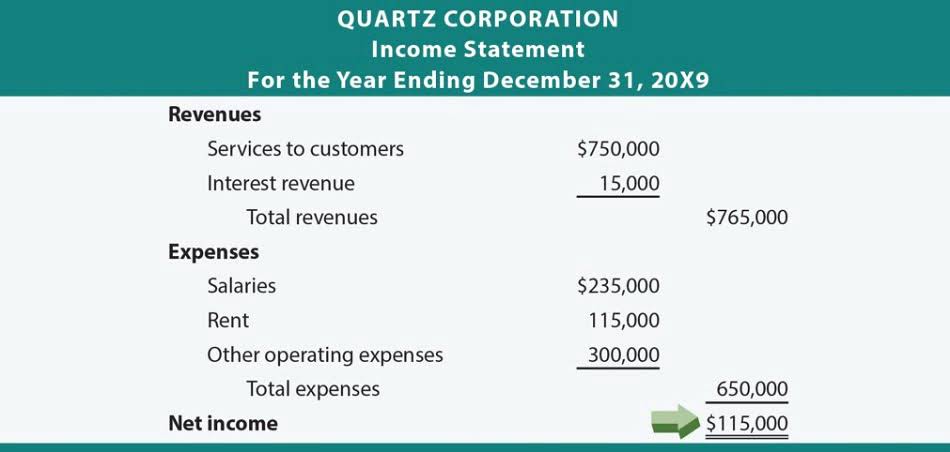
Working with an accountant and the right legal practice management software will ensure you have accurate record-keeping—and help avoid the nightmare situation of malpractice. It’s important to online bookkeeping understand that different states will have different IOLTA requirements. We recommend checking in with your bar association and state program to understand geographic-specific compliance.

Trust Accounting: Everything Lawyers Need to Know
- This article will demystify trust accounting for lawyers, covering everything from tips and best practices to creating your process.
- By avoiding these common pitfalls, you can ensure compliance with attorney trust account rules and maintain proper trust accounting practices.
- Firms must be able to promptly share these records when requested by clients or their local Bar Association.
- TrustBooks is simple and intuitive, so trust accounting isn’t intimidating.
- The NLR does not wish, nor does it intend, to solicit the business of anyone or to refer anyone to an attorney or other professional.
Whatever the reason, borrowing from an IOLTA account carries stiff penalties, regardless of which state you’re in. These can include accusations of misappropriation of funds as well as disciplinary action by your state’s Bar Association. Borrowing money from an IOLTA is also one of the most common ways to get disbarred. Regardless of how your law firm does its accounting, the system that you use to keep track of an IOLTA account must conform to the principles of double-entry accounting.

Stay Compliant with IOLTA Account Rules with MyCase
In other words, there is a valid charge for not being available to others. Opinions on the subject suggest that the retainer for the purpose must be “reasonable,” as negotiated and detailed in the engagement agreement. If you receive a retainer for future work, it would seem best to put this into your client’s trust account. However, again, it is best that the engagement agreement provide for this upon realizing a certain date or event. If you charge a flat fee and agree that it is earned upon receipt, withdrawal must be made.

Keep Client and Business Funds Separate
- Others believe that only dishonest lawyers are disciplined for escrow-account violations.
- Regardless of which state you’re in, you cannot, under any circumstances, use an IOLTA account as a savings account or an operating account, even if the money you withdraw from the IOLTA has already been earned.
- Law firms need to follow specific rules on how client funds are handled, and maintaining an IOLTA account ensures compliance with ethical and legal obligations.
- In addition to lost time, disorganized accounting systems can lead to unhappy clients, misappropriation of funds, and disciplinary action if mistakes are made.
Instead, it will first go into the trust account so that the attorney can deduct fees, third-party claims, and expenses. Before IOLTA came about in the early 1980s, trust accounts were to be put into non-interest-bearing checking accounts since lawyers were not to benefit from their clients’ money. Law firms use trust accounts to hold client funds and keep them separate from the law firm’s funds. Firms must keep a detailed record of money going in and out of their trust accounts, track every client’s balance in the trust account, and ensure one client’s funds aren’t used to pay another client’s expenses. While similar, a client trust account and an escrow account serve different purposes.
- Interest earned from these accounts is sent to local Bar Associations to support nearbycharitable legal work.
- You should be able to check your firm’s financial records and progress at any time, so you can make informed decisions for your clients and your firm.
- All of your raw financial information flows into it, and useful financial information flows out of it.
- Clio’s legal trust accounting management software makes IOLTA easy for lawyers, helping meet the above requirements with trust accounting features and workflows.
- In addition, it is important to lay out a “protest process” in your engagement agreement.
- Lawyers are permitted to maintain their trust accounts only at those New York banks which agree to provide bounced check reports to the Lawyers Fund for Client Protection.
This guide is intended to help refresh your memory on the basics of your professional responsibility with trust accounting, and best practices you should know. You should not be relying on manual checks trust accounting for lawyers of your client’s trust accounts to ensure they are error-free and compliant. Finding trust accounting software for your firm will make everything run more smoothly and efficiently.

Trust accounting refers to the practice of keeping separate track of client funds given https://www.bookstime.com/ in trust and a law firm’s operating funds. This ensures that funds are kept safe and managed with full transparency. MyCase’s legal accounting software simplifies the IOLTA trust accounting process by housing case data and financial information in one IOLTA-compliant system. Save time and have peace of mind by automating bank reconciliations, maintaining up-to-date records, and preventing the commingling of funds.
